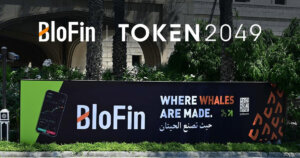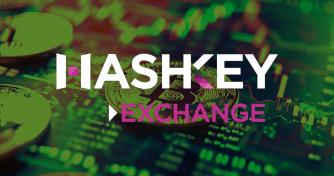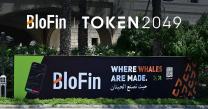 Hong Kong’s bond tokenization efforts yield ‘significant operational improvements’
Hong Kong’s bond tokenization efforts yield ‘significant operational improvements’ Hong Kong’s bond tokenization efforts yield ‘significant operational improvements’
The HKMA said Project Evergreen revealed that tokenization and DLT could eliminate the intrinsic inefficiencies inherent in conventional financial systems.

Cover art/illustration via CryptoSlate. Image includes combined content which may include AI-generated content.
The Hong Kong Monetary Authority (HKMA) said that blockchain-based bonds have showcased the potential for “significant operational improvements” in the bonds market, the South China Morning Post reported.
Hong Kong’s central bank issued HK$800 million worth of blockchain-based green bonds under a tokenization initiative launched in February called Project Evergreen. The project used distributed ledger technology (DLT) to issue and trade the digital bonds.
The HKMA said Project Evergreen revealed that tokenization and DLT could eliminate the intrinsic inefficiencies inherent in conventional financial systems.
Benefits of tokenization
The HKMA wrote in Project Evergreen’s conclusion report that traditional bond issuance is a complicated process requiring multiple organizations to interact with several systems to manage issuance, settlement, payment, and redemption. The process is sluggish and vulnerable to errors, which means even more time is needed to ensure accuracy.
However, digital bonds issued via DLT reduce that complexity by “bringing together all the different parties onto one common platform,” which in turn improves the overall efficiency.
The HKMA added that DLT provides “an immutable single source of truth” for the bonds, essentially creating a consistent and tamper-proof record.
The regulator said that DLT’s capability allows immediate and concurrent settlement, significantly diminishing potential risks and latencies. It also highlighted the potential for secondary trading of digital bonds on DLT platforms and said it could enhance liquidity and transparency.
However, allowing secondary trading involves various technological and legal issues that need to be ironed out and would also require these platforms to hold securities licenses.
Hurdles to adoption
The tokenization of traditional financial assets such as bonds is still in its “infancy,” and mass adoption is hampered by various hurdles, such as the lack of interoperability between different DLT platforms and conventional financial systems.
HKMA chief executive Eddie Yue Wai-man wrote in the report:
“Despite the increasing number of issuances globally in recent years, bond tokenisation is still at its infancy; multiple challenges would have to be overcome for it to be widely adopted.”
The report also noted that despite the intrinsic use of DLT in Project Evergreen, some of the processes to issue the digital bonds were still paper-based due to the nature of the system.
The HKMA said that many of these established processes need to be overhauled to accommodate the digitization of financial assets. Additionally, laws and regulations need to be “fine-tuned.”






























































